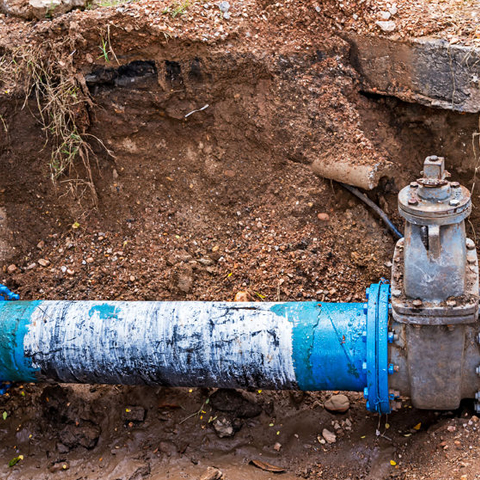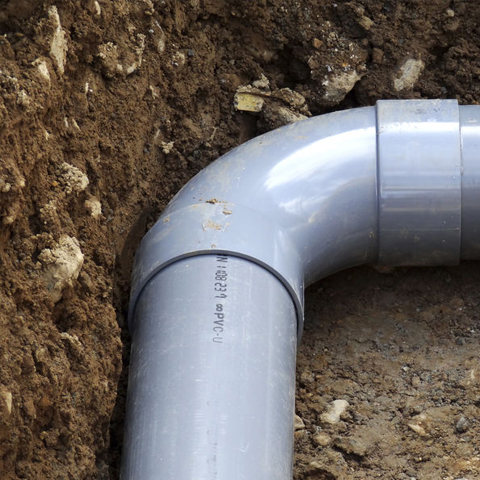
What causes a burst pipe?
A burst pipe causes so much grief and problems, it can be almost devasting, and the amount of damage it can cause can be a financial catastrophe for many. A burst pipe emergency can put anyone in a panic, especially inside the house. Everyone is running around trying to stop the gushing water and getting the water turned off until they get the burst pipe fix done.
No matter how long you have been a homeowner, a burst pipe can catch you off guard if you’ve never had to deal with one. Read on as we share some burst pipe insurance claim tips, examine the how, what, and when of burst pipes, and more.
Burst pipes are common household plumbing issues that every homeowner will have to contend with at some point. Whether it is with the plumbing network inside the house or the water pipes that supply the water to the house, they can burst without warning. This often leads to temporary chaos until the gushing water is stopped, and sometimes, it is an easy, minor fix. Other times, it can be a major repair that only a qualified plumber can handle. Some common reasons that you may experience a burst pipe are:
Frozen Water
If you had to pick things that happen in winter that is the worst that could happen to your home, frozen water would be in the top five. Freezing can occasionally subject water to temperatures -4 degrees Celsius. At this low temperature, water becomes solid and blocks any possible water flow, thus creating considerable pressure that accumulates at the blockage because of the expanded ice mass, subjecting the pipes to tension, resulting in a burst pipe.
External Forces
External pressure can affect water pipes and cause a burst pipe. Most times, they bury water pipes underground and become subjected to pressure by construction equipment, passing cars, tree roots, and other heavyweights going over the area where the pipes lay. This type of pressure can squeeze the water pipes more than they can structurally handle, making them crack or burst, thus leading to a leaking or a burst pipe.
Excessive Pressure
They construct water pipes to endure a specified level of water pressure. That specific level is usually labeled on the water pipe. When the water pressure limit is exceeded by more water being pumped than that specification, usually because the pipe is too narrow for the pressure, it results in a burst pipe.
Incorrect Pipework and Layering
A licensed, qualified plumber that is experienced in plumbing to do pipe layering should install pipework and the connections. If any error in this process, it can lead to incorrect subjugation of water pressure, resulting in a burst pipe. An example is when a larger pipe is connected to a pipe is not as thick, the excessive pressure from the water can lead to a burst pipe.
Old Pipework
They design metal or plastic water pipes to have only a limited life expectancy. Depending on the weather elements that are exposed to and if regular maintenance to the plumbing system was in place, their lifespan could be longer than anticipated or shorter. Engineers have concluded that water pipes can last 20 years longer unless they are structurally degraded to where they can no longer withstand significant water pressure. Metal pipes are affected by corrosion over time and plastic pipes become brittle, thus, the slightest amount of pressure from the water can cause a burst pipe.
Clogs
Clogs often result in pipe blockages that consequently result in a burst pipe. Water pipe clogs are typically the result of accumulated minerals that coagulate on the inner surface of the pipes. A clog can also happen because of solid materials carried through the pipes by water. A massive clog will hinder the water flowing downstream and lead to the incredible pressure accumulating upstream. This will result in a burst pipe and/or leak.
Movements
Ground movement isn’t as common as the other issues we’ve discussed, but it can cause an extreme force on a pipe, such as an earthquake or tremor. In some areas of the country, freezing temps can cause the ground to heave. In any of these situations, the ground moved down, laterally, or up a slight bit can cause a burst pipe.
Connected Improperly
Pipe connections are a vulnerable point in water pipelines. If they are connected improperly or they are weak, the extreme pressure they are exposed to can cause a burst pipe.
Can pipes burst in warm weather?
Every homeowner should make it a routine to check the water pipes all year long for possible leaks, signs of water damage, or possible burst pipe.
- Rusted Pipes: Pipes will only last for so long, over time, they rust and wear out. Too much rust makes them vulnerable to a burst pipe.
- Hard Water: Hard water is caused by a high content of calcium and magnesium, and while these are not harmful to us, they are hard on water pipes, causing corrosion, holes and eventually burst pipe.
- Poor Installation: Pipe leaks that are installed poorly have ill-fitted connections.
How do you know if a water pipe burst
The following are seven indications you may have a burst pipe.
- Water Pressure Fluctuates Up and Down
- The Water Has Strange Appearance or Color
- A Rotten Eggs Odor
- Puddles Under Sinks
- Sound of Water Running with Faucets Off
- Noisy Pipes
- Excessive Water Bill
How do you deal with a burst pipe?
There are things worse than a burst pipe, but as a homeowner, when it happens, it is hard to imagine that. Winter is the most troubling time for weak water pipes, so when a burst pipe happened, you must act fast. We recommend the following steps:
- Turn the water off at the main – this will completely turn your water supply off. If the water has reached any electrical sockets, breaker box or fuse box, turn the electricity off too.
- Drain the water faucets – cold water taps first, flush the toilet to empty the tank, turn off the water heater, then empty the hot water taps.
- Open the cabinets – this lets warm air in, important during the winter.
- Clean up -With any luck, you’ll know right away where the water came from, but either way, clean up the mess so you don’t have water sitting somewhere to form mildew and mold.
- Document – Once you have the emergency water flow contained, take pictures and document the damage to your home and your possessions. Throw nothing away, you’ll need this for evidence for the insurance adjuster.

How do you stop a leaking pipe?
If you find a small leak, using a compound stick to rub over the hole will usually stop the leak. These can be used without turning the water off and can be applied to wet pipes. For a larger hole, you must turn the water off, allow the pipe to completely dry, then apply an epoxy paste and allow it to thoroughly dry before turning the water on.
A burst pipe isn’t any fun and can be catastrophic on many levels. However, with preparation, when it happens, you can minimize that catastrophe and the damage that can result from a burst pipe, just as regular inspection of your roof can catch possible issues before they become catastrophic problems. Call 419-546-8424 today for burst pipe repair in Stryker, Bryan, and Napoleon, OH.
